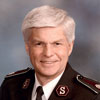 God gave us minds so that we can think and reason. With our intellect we make choices. With our judgment we work through various alternatives and situations. A more scientific explanation would suggest that all our thoughts, movements and states of mind are the products of neurochemical cascades that run along neurological pathways in the form of electronic impulses. However, as my highly respected surgeon friend put it, “There is much more that we do not know about the mind than what we do know. The mind remains a mystery.”
God gave us minds so that we can think and reason. With our intellect we make choices. With our judgment we work through various alternatives and situations. A more scientific explanation would suggest that all our thoughts, movements and states of mind are the products of neurochemical cascades that run along neurological pathways in the form of electronic impulses. However, as my highly respected surgeon friend put it, “There is much more that we do not know about the mind than what we do know. The mind remains a mystery.”
One of the greatest thinkers of all time, Albert Einstein, was captivated by the vast immensity of celestial space on one hand and the infinitesimally small atomic world on the other. He said, “The most beautiful thing we can experience is the mysterious .... He to whom this emotion is a stranger, who can no longer pause to wonder and stand rapt in awe, is as good as dead: his eyes are closed.” The mystery of God and his creation is beyond our mortal comprehension.
With abundant and unrestricted love, he entrusted us with the capacity to know, think, feel, will and remember so that we can make decisions. The mind is the seat of consciousness. It is where one has good thoughts or bad thoughts. It is also the seat of volition—to will our lives in harmony with Christ's design for us or to turn from him. The mind is where our feelings and emotions take action.
J.S. Bach is arguably one of the greatest composers in history. He believed that the purpose of his music “should be none else but for the glory of God and the recreation of the mind.” Ultimately, he believed that music brought glory to God, as the letters SDG (Soli Deo Gloria, “To God alone be glory”) at the end of most of his scores bear witness.
Jean Vanier, son of the 19th Governor General of Canada, wanted to help those who were institutionalized because of developmental disabilities. Vanier invited two people from an institution to live with him in a home he called L'Arche, meaning “The Ark.” Vanier believed that people confronted with human brokenness and weakness required love and respect. This brilliant, caring man wanted his life to have eternal meaning and purpose. “There is mystery in the tenderness (of helping these fairly helpless people),” he said. “They have brought me from the world of ideas, the world of power, into the primary world of relationship.” Today, there are 135 L'Arche communities in 35 countries.
What we do with our mind is crucial. Above all, God wants us to have a mind like Christ's, filled with godly thoughts that are guided by a Christlike attitude and spirit. God desires us to be whole, right and good; to have a passion for ministry; to have empathy for others; to be in relationship with him, others and his creation.
… be made new in the attitude of your minds; and … put on the new self, created to be like God in true righteousness and holiness (Ephesians 4:23-24).
We need leaders who have recreated minds; people willing to be used for God's service. We must remain prepared to dedicate our minds to Christ. This does not mean we all have to be the same. Life would be boring if that were the case. We are, however, to be united in mind and purpose—to be fruitful for Christ and his Kingdom.
… be perfectly joined together in the same mind … (1 Corinthians 1:10 KJV).
This month we will ordain and commission cadets and auxiliary-captains to be officers, ministers of the gospel through The Salvation Army. We need more like-minded people, willing to sacrifice for the sake of Christ; leaders who are willing to offer all of themselves for the work of Christ's mission on earth.
Let this mind be in you, which was also in Christ Jesus (Philippians 2:5 KJV).
 Commissioner William W. Francis is the Territorial Commander of The Salvation Army Canada and Bermuda Territory. His wife, Commissioner Marilyn Francis, is the Territorial President for Women's Ministries. Commissioners Francis have two adult children, Captain William Marshall and Susan Marjorie, plus six grandchildren.
Commissioner William W. Francis is the Territorial Commander of The Salvation Army Canada and Bermuda Territory. His wife, Commissioner Marilyn Francis, is the Territorial President for Women's Ministries. Commissioners Francis have two adult children, Captain William Marshall and Susan Marjorie, plus six grandchildren.









Might I suggest a book that came out last year that has shed even further light on the mind/brain controversy?
The Spiritual Brain
A Neuroscientists Case for the Existence of the Soul
by Mario Beauregard & Denyse O'Leary.
This book has an interesting take backed up by a study done by Beauregard and there is a lot of great information that leads up to the premise of the study provided by Denyse.
Blessings!
Kathie